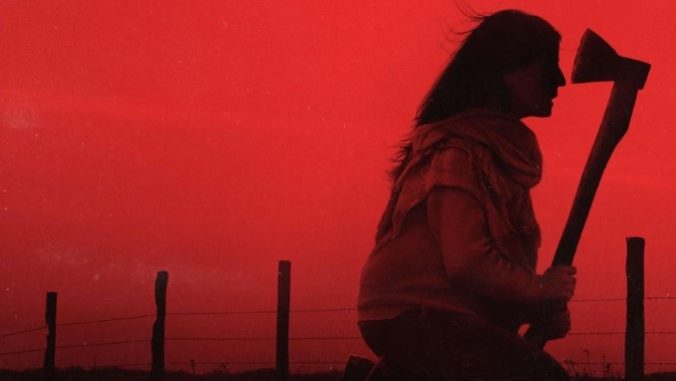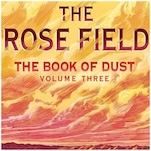The 30 Best Horror Movies on Hulu Ranked (October 2025)

In terms of comparing the major streaming services, it’s easy to think of Hulu as “the TV-focused one,” but that’s not entirely fair—the service also has a healthy number of movies at any given time, although its overall library is nowhere near the size of Netflix’s or (especially) Amazon Prime’s. Still, horror geeks who happen to have a Hulu subscription actually have access to a surprisingly large library of quality films.
Kudos to Hulu for eventually creating a horror-specific subcategory instead of “horror and suspense” jumbled together into one category that somehow contained the likes of both The Babadook and Snowden. Now at least everything you see when you visit the “horror” tab makes sense being there.
In 2025, the Hulu library seems to have been recently been purged of some films, which has reduced the overall size of the library. Particularly in terms of indie horror, though, Hulu has made its mark as one of the better streaming services.
You may also want to consult the following horror-centric lists:
The 100 best horror films of all time.
The 100 best vampire movies of all time.
The 50 best zombie movies of all time.
The 50 best movies about serial killers.
The 50 best slasher movies of all time
The 50 best ghost movies of all time.
The best horror movies streaming on Netflix.
The best horror movies streaming on Amazon Prime.
The best horror movies streaming on Shudder.
So without any further ado, here are the 30 best horror movies streaming on Hulu:
1. Alien
Year: 1979
Director: Ridley Scott
Stars: Sigourney Weaver, Tom Skerritt, John Hurt
Rating: R
Conduits, canals and cloaca—Ridley Scott’s ode to claustrophobia leaves little room to breathe, cramming its blue collar archetypes through spaces much too small to sustain any sort of sanity, and much too unforgiving to survive. That Alien can also make Space—capital “S”—in its vastness feel as suffocating as a coffin is a testament to Scott’s control as a director (arguably absent from much of his work to follow, including his insistence on ballooning the mythos of this first near-perfect film), as well as to the purity of horror as a cinematic genre. Alien, after all, is tension as narrative, violation as a matter of fact: When the crew of the mining spaceship Nostromo is prematurely awakened from cryogenic sleep to attend to a distress call from a seemingly lifeless planetoid, there is no doubt the small cadre of working class grunts and their posh Science Officer Ash (Ian Holm) will discover nothing but mounting, otherworldly doom. Things obviously, iconically, go wrong from there, and as the crew understands both what they’ve brought onto their ship and what their fellow crew members are made of—in one case, literally—a hero emerges from the catastrophe: Ellen Ripley (Sigourney Weaver), the Platonic ideal of the Final Girl who must battle a viscous, phallic grotesque (care of the master of the phallically grotesque, H.R. Giger) and a fellow crew member who’s basically a walking vessel for an upsetting amount of seminal fluid. As Ripley crawls through the ship’s steel organs, between dreams—the film begins with the crew wakening, and ends with a return to sleep—Alien evolves into a psychosexual nightmare, an indictment of the inherently masculine act of colonization and a symbolic treatise on the trauma of assault. In Space, no one can hear you scream—because no one is listening. —Dom Sinacola
2. When Evil Lurks
Year: 2023
Director: Demián Rugna
Stars: Ezequiel Rodriguez, Demian Salomon, Luis Ziembrowski, Silvia Sabater, Marcelo Michinaux
Rating: NR
Director Demián Rugna’s debut horror feature Terrified has slowly but surely captured the attention of horror geeks around the world, but 2023’s When Evil Lurks is likely to complete his ascent to a star in the genre, even if he hasn’t yet produced an English-language feature. This is one of the most disturbingly creative and fraught possession horror films to arrive in decades, dropping the viewer absolutely cold into a setting where god is dead and evil is seemingly running roughshod over the Earth.
It’s deeply disconcerting to watch a horror film centered around demonic possession where the act of possession isn’t decried by the characters as some foolish impossibility, but is instead a well-understood facet of daily existence in this world. The arrival of a “rotten one” in a community is like the outbreak of an exotic and extremely deadly disease, requiring the presence of a specifically trained “cleaner” to dispose of the gestating demon in a way that doesn’t result in the entire area quickly becoming infected with evil. What happens when regular people have to deal with that kind of horror themselves? We quickly come to realize that there are a plethora of “rules” to surviving these encounters, but Rugna doesn’t handhold the audience and inform us of what they all are–every interaction instead becomes a paranoid question of wondering if the characters have become possessed, or vulnerable to attack. Never are we certain of what is true, and what is folklore. Pair this uncertainty with unflinching savagery and brutality, and you have one of the most gut-wrenching horror films to make its way to a small number of U.S. theaters in recent memory. —Jim Vorel
3. Aliens
Year: 1986
Director: James Cameron
Stars: Sigourney Weaver, Bill Paxton, Jenette Goldstein, Paul Reiser, Lance Henriksen, Michael Biehn
Rating: R
James Cameron colonizes ideas: Every beautiful, breathtaking spectacle he assembles works as a pointillist representation of the genres he inhabits—sci-fi, horror, adventure, thriller—its many wonderful pieces and details of worldbuilding swarming, combining to grow exponentially, to inevitably overshadow the lack at its heart, the doubt that maybe all of this great movie-making is hiding a dearth of substance at the core of the stories Cameron tells. An early example of this pilgrim’s privilege is Cameron’s sequel to Ridley Scott’s horror masterpiece, in which Cameron mostly jettisons Scott’s figurative (and uncomfortably intimate) interrogation of masculine violence to transmute that urge into the bureaucracy that only served as a shadow of authoritarianism in the first film. Cameron blows out Scott’s world, but also neuters it, never quite connecting the lines from the aggression of the Weyland-Yutani Corporation to the maleness of the military industrial complex, but never condoning that maleness, or that complex, either. Ripley’s (Sigourney Weaver) story about what happened on the Nostromo in the first film is doubted because she’s a woman, sure, but mostly because the story spells disaster for the corporation’s nefarious plans. Private Vasquez’s (Jennette Goldstein) place in the Colonial Marine unit sent to LV-426 to investigate the wiping out of a human colony is taunted, but never outright doubted, her strength compared to her peers pretty obvious from the start. Instead, in transforming Ripley into a full-on action hero/mother figure—whose final boss battle involves protecting her ersatz daughter from the horror of another mother figure—Cameron isn’t messing with themes of violation or the role of women in an economic hierarchy, he’s placing women by default at the forefront of mankind’s future war. It’s magnificent blockbuster filmmaking, and one of the first films to redefine what a franchise can be within the confines of a new director’s voice and vision.—Dom Sinacola
4. The Babadook
Year: 2014
Director: Jennifer Kent
Stars: Essie Davis, Noah Wiseman
Rating: NR
Classifying Jennifer Kent’s feature debut, The Babadook, is tricky. Ostensibly this is a horror film—freaky stuff happens on an escalating scale, so qualifying Kent’s tale of a single mother’s fractious relationship with her young son with genre tags seems like a perfectly logical move. But The Babadook is so layered, so complex and just so goddamned dramatic that categorizing it outright feels reductive to the point of insult. There’s a grand divide between what Kent has done here and what most of us consider horror. You’ll spend your first week after the experience sleeping with the lights on. You will also come away enriched and provoked. Australian actress-turned-filmmaker Kent has made a movie about childhood, about adulthood and about the nagging fears that hound us from one period to the next. There’s a monster in the closet—and under the bed, and in the armoire, and in the basement—but the film’s human concerns are emotional in nature. They’re not aided by the ephemeral evil lurking in the dark places of its characters’ hearts, of course; going through personal trauma is enough of a chore when you’re not being stalked by the bogeyman. —Andy Crump
5. The Host
Year: 2006
Director: Bong Joon-ho
Stars: Song Kang-ho, Byun Hee-bong, Park Hae-il, Bae Doona, Go Ah-sung
Rating: NR
Before he was breaking out internationally with a tight action film like Snowpiercer, and eventually winning a handful of Oscars for Parasite, this South Korean monster movie was Bong Joon-ho’s big work and calling card. Astoundingly successful at the box office in his home country, it straddles several genre lines between sci-fi, family drama and horror, but there’s plenty of scary stuff with the monster menacing little kids in particular. Props to the designers on one of the more unique movie monsters of the last few decades–the mutated creature in this film looks sort of like a giant tadpole with teeth and legs, which is way more awesome in practice than it sounds. The real heart of the film is a superb performance by Song Kang-ho (also in Snowpiercer and Parasite) as a seemingly slow-witted father trying to hold his family together during the disaster. That’s a pretty common role to be playing in a horror film, but the performances and family dynamic in general truly are the key factor that help elevate The Host far above most of its ilk. —Jim Vorel
6. Oddity
Year: 2024
Director: Damian McCarthy
Stars: Gwilym Lee, Carolyn Bracken, Tadhg Murphy, Caroline Menton, Jonathan French, Steve Wall
Rating: R
The success of Damian McCarthy’s Oddity is a testament to the Irish filmmaker’s ability to get the maximum possible mileage out of the smallest units of filmmaking verve. Compared to some of the other entries on this list, Oddity is understated, slowly paced, supremely patient. It depends almost entirely on the strength of its skin-crawlingly good opening sequence and a few key elements: The performance of Irish actress Carolyn Bracken, a unique and visually engaging shooting locale, and the creepiest goddamn mannequin ever put on the silver screen.
Oddity is a story that happens in the wake of a brutal but mysterious tragedy, part of which we witness in its transfixing opening moments, which deliver a “what would you do in this scenario?” prompt for the ages. A woman is alone late at night in a creepy home being renovated, cut off from internet access or cellular reception, when a frightening looking man appears at her door. The agitated man insists that he saw an unknown person enter the woman’s home, that she is not safe because there’s someone in there with you. He begs her to open the door and allow him to come to her aid, seeming sincere despite his apparent derangement. So, which do you fear more: The potential threat you can see, or the one that may be hidden around the next corner? Rarely has any recent indie horror crackled with as much palpable tension as McCarthy immediately establishes here, and McCarthy milks it for all it’s worth. —Jim Vorel
7. Prey
Year: 2022
Director: Dan Trachtenberg
Starring: Amber Midthunder, Dakota Beavers, Dane DiLiegro, Stormee Kipp, Michelle Thrush, Julian Black Antelope
Rating: R
Filmmaker Dan Trachtenberg’s Predator prequel Prey succeeds by daring to embrace what prior sequels did not: Simplicity. The basics of Predator cinema boil down to skull trophies and rival combat, but most of all, the thrill of an uninterrupted hunt. With brutal ease, writer Patrick Aison translates Predator codes to hunter-gatherer dichotomies in Native American cultures. There’s nothing scarier than the laws of natural hierarchies on display in their most elemental forms, and that’s what Prey recognizes with menacing regard. Trachtenberg understands what Predator fans crave, and executes without mercy. Set in the Northern Great Plains of 1719, Prey pits a Predator challenging any species’ alphas—wolves, bears, people—against a Comanche tribe. Taabe (Dakota Beavers) leads other boys on hunts while his sister Naru (Amber Midthunder) practices her deadliest skills in secrecy. She’s dismissed by most for her gender, but not by Taabe. Naru’s chance to defeat a lion (thanks to Taabe) and earn her warrior’s rite of passage fails when a Predator’s alien technology distracts from afar—which no one believes. Only Naru can protect her family and tribespeople from the unknown Yautja threat since no one will listen, which will be the warrior-wannabe’s ultimate test. Prey is inarguably the best Predator since the original. The film gets so much right, paying homage to John McTiernan’s 1987 masterwork—through cigars and direct quotes that it’ll have fans hooting—and adding Indigenous representation with real cultural strength. Trachtenberg and Aison keep things simple, and that’s the special sauce. The performances are tough-as-nails, action sequences absurdly gory and intensity streamlined like a high velocity arrow. By going back to beginnings, Prey sheds pounds of franchise dead weight for a leaner, meaner Predator prequel with all the spine-tearing, one-liner-spouting gladiatorial conquest that fans desire—computer-generated or not. —Matt Donato
8. Tucker & Dale vs. Evil
Year: 2010
Director: Eli Craig
Stars: Tyler Labine, Alan Tudyk, Katrina Bowden, Jesse Moss
Rating: R
Let’s face it, hillbillies and their ilk have been getting the short end of the pitchfork in movies since the strains of banjo music faded in 1972’s Deliverance. And whether due to radiation (The Hills Have Eyes) or just good old determined inbreeding (Wrong Turn and so, so many films you’re better off not knowing about), the yokel-prone in film have really enjoyed slaughtering innocent families on vacation, travelers deficient in basic map usage skills, and, best of all, sexually active college students just looking for a good time. But fear not, members of Hillbillies for Inclusion, Consideration & Kindness in Screenplays (HICKS)—writer/director Eli Craig has your hairy, unloofahed back. His film, Tucker & Dale vs. Evil, answers the simple question: What if those hillbillies are just socially awkward fellows sprucing up a vacation home and the young college kids in question are just prone to repeatedly jumping to incorrect, often fatal, conclusions? Think Final Destination meets the Darwin Awards. —Michael Burgin
9. Longlegs
Year: 2024
Director: Oz Perkins
Stars: Maika Monroe, Nicolas Cage, Alicia Witt, Blair Underwood, Kiernan Shipka
Rating: R
The first thing I wanted to do after seeing Longlegs is take a shower. Some horror movies have you looking over your shoulder on the way out of the theater, jumping at shadows in the parking lot. These are the horror movies that follow you. Longlegs doesn’t follow you. You’re drenched in Longlegs. It’s all over you—in your hair, on your clothes—by the time the credits roll. Its fear is less tangible than a slasher or a monster, even less than a demon. It’s just something in the air, in the back of your mind, like the buzz of a fluorescent lamp. Oz Perkins’ Satanic serial killer hunt is his most accessible movie yet, putting the filmmaker’s lingering, atmospheric power towards a logline The Silence of the Lambs made conventional. Precisely crafted and just odd enough to disarm you, allowing its evil to fully seep in, Longlegs is a riveting tale of influence and immersion. After FBI agent Lee Harker (Maika Monroe) successfully, and mysteriously, locates a killer on little more than a hunch, her charming boss, Agent Carter (Blair Underwood), assigns the quiet savant to a long-dormant investigation into a suspect known only by how he signs the coded letters found at the crime scenes: Longlegs (Nicolas Cage). Only, the mystery to be solved isn’t Clue. You’re not filling in weapon, location, suspect. The question crawling under Longlegs’ skin is how grounded this case actually is, whether it’s a truly by-the-book procedural or whether that book is bound in skin and filled with spells. Lee is tight-lipped and uneasy in her own skin, a child’s soft voice wrapped in a blue FBI windbreaker. But she doesn’t balk at corpses, or head for the hills once she realizes she’s on Longlegs’ radar. Longlegs could also feel like familiar territory for Cage, at first glance. And that’s all we get at first, glances. Like any good monster movie, we’re denied a close look at Longlegs for a decent chunk of the movie’s three segments, but once we see him, that’s all you can think about. You see how a demonic seed has been planted and left to its own devices, down in some forgotten cellar, festering in the dark. As Perkins’ story progresses, you wonder where else those seeds have spread. It’s rotten Americana, every god-fearing Bible-thumper’s fears proven right. Longlegs contains a handful of impressively controlled performances, a dilapidated aesthetic rich with negative space, a queasy score, a methodical but always gripping pace, and one of the most original and upsetting horror villains in a long while. Perkins’ haunted vision is so convincing, you also might feel like scrubbing it off of you after you’ve hustled back to the safety of your home.–Jacob Oller
10. The First Omen
Year: 2024
Director: Arkasha Stevenson
Stars: Nell Tiger Free, Tawfeek Barhom, Sônia Braga, Ralph Ineson, Bill Nighy
Rating: R
Unless it’s something like the Evil Dead franchise, I generally don’t give horror sequels or prequels a passing thought other than “obvious insta-garbage.” How wrong I was about The First Omen, the feature debut of writer/director Arkasha Stevenson. Her film immediately struck me not as a franchise cash-in, but as the work of someone who deeply understands what makes good horror tick and who made this installment almost completely their own. The small handful of Marvel-esque Easter eggs are entirely negligible for how well the film succeeds at being an affecting and stomach-churning work of modern horror. The First Omen kicks off with a queasy conversation between two English priests, Father Harris (Charles Dance) and Father Brennan (Ralph Ineson), over the conception of an unknown cursed child, a girl (Damien is a boy, yes—but I’ll keep this review spoiler-free) whose birth will bring forth an all-powerful evil. Kept elusive and told via a collage of disturbing yet striking images, we leave this scene and cut to the arrival of a young American nun-to-be named Margaret (Nell Tiger Free). She befriends her new roommate, the free-spirited Luz (Maria Caballero), who is determined to use her remaining days of secular freedom spent as the hedonistic young woman she still is. One night, Luz gets a reluctant Margaret all gussied up and drags her to a disco, where Margaret meets a nice Italian boy with whom she shares an intimate moment. The next day, she wakes up in a puddle of her own sweat, the memory of the previous night already erased; Luz assures her that she got Margaret home safely. A grave encounter with Father Brennan portends impending doom, and Margaret begins to see and experience strange, diabolical things. Stevenson, aided by co-writers Tim Smith and Keith Thomas, makes The First Omen remarkably fresh while utilizing old tricks. Pans and zooms give the filmmaking a throwback feel (cinematography credited to Aaron Morton), jump scares function as earned accoutrement for a well-crafted atmosphere instead of supplanting actual horror filmmaking, and there are images that are genuinely difficult to look at—not just because they make the audience look at something particularly visceral, but because of the way the shot is blocked, the way the lighting is lit, the way a body is not quite as it should be. Not overtly gory but just off, which is often far more skin-crawling than blood and guts ever are. The First Omen is an exceedingly successful first feature, and an invigorating film within a genre’s increasingly limp mainstream.–Brianna Zigler
11. Stopmotion
Year: 2024
Director: Robert Morgan
Stars: Aisling Franciosi, Stella Gonet, Tom York
Rating: R
Folks on the prowl for monstrously uncanny thrillers need to prioritize Robert Morgan’s Stopmotion. The award-winning short filmmaker’s hallucinatory feature debut remarkably blends stop-motion with live-action like it’s a commonplace horror practice. Morgan bleakly and ingeniously captures what it means to be a “tortured artist,” hybridizing an icky yet alluring stop-motion style that feels like a collaboration between claymation celebrity Lee Hardcastle and slasher legend Leatherface. Aisling Franciosi of The Nightingale and The Last Voyage of The Demeter fame stars as Ella Blake, an aspiring stop-motion filmmaker under duress. Morgan does a tremendous job making Ella’s handcrafted characters feel inhuman but alive. Ella ditches felt and fuzzy materials for steel armatures and mortician’s clay, molding putty people who resemble escaped delinquents from Phil Tippett’s Mad God. The introductions of raw meat underneath waxy flesh only add to the disfigured take on human anatomy, like our figure was lumpily reshaped by stone hands. Morgan’s feature debut is as stunning, diabolical and boundary-pushing an emergence as any filmmaker could hope to achieve. Stopmotion is brazenly original and delicately unhinged, well-intentioned to let us marinate in Ella’s poisonous behaviors. We’ve seen movies where unhealthy obsessions devour artists, but never with stop-motion freakshows rising from an inexplicable beyond to haunt their makers. It’s fresh, it’s ferociously unique and it’s goddamn fantastic—three important “F” words.–Matt Donato
12. Castle Rock
Year: 2018
Director: Various
Stars: Andre Holland, Melanie Lynskey, Bill Skarsgård, Sissy Spacek, Lizzy Caplan, Tim Robbins
Rating: NR
Castle Rock is easy to love if you’ve already given yourself up to Stephen King’s brand of campfire story, with all the hokey chuckles and midnight palm-sweating that comes with it. I know I have—I just finished enjoying King’s latest, The Outsider—which makes me a prime target (though, I suspect, not the only target) for Sam Shaw and Dustin Thomason’s Hulu original series, based on King’s mythos. Michael Uppendahl directs the solid pilot, which pushes artistry and literary fidelity into its compellingly sketched mystery, and the hooks only sink in deeper over the rest of season one. The plot and environment (because one is inevitably entangled with the other) use the stories of Stephen King as their knitting fiber, intertwining both meta- and textual characters and themes into the afflicted town of Castle Rock (home of Cujo and The Dead Zone). Along with It’s Derry and the oft-abbreviated Jerusalem’s Lot, Castle Rock makes up the Bermuda triangle of fictitious Maine haunts that King keeps coming back to. King’s work loves a polluted system, and towns work just as well as prisons or hotels. The atmosphere works because the series’ thematic and artistic construction do each other plenty of favors. For example, the show treats religion and the supernatural as forces that aren’t necessarily on equal footing, but are certainly enabling each other, like a father pushing his child higher and higher on the swing set. Which is which never stays the same. There’s misguided righteousness, dangerous excitement, and legitimate goodness caught up in the battle for Castle Rock’s soul, which is an exciting spin on the conventional Exorcist-like binary questioning of faith. —Jacob Oller
13. Cobweb
Year: 2023
Director: Samuel Bodin
Stars: Lizzy Caplan, Antony Starr, Cleopatra Coleman, Woody Norman
Rating: R
Samuel Bodin’s upstart Cobweb arrived seemingly out of nowhere in the summer of 2023, and was sadly given very shoddy marketing that doomed it to a quick and uneventful theatrical release before it settled into the morass of VOD availability. That’s a shame, as Cobweb is a very skillfully directed horror yarn from the young filmmaker, unraveling a tangle of familiar tropes in a manner that is able to refresh almost all of them. The film has been expertly framed as a perspective we are seeing entirely from child height, featuring a grimy layer of nightmare unreality through which young Peter (Woody Norman) begins experiencing nightly disturbances from within the walls of his bedroom. It all has the feeling of dark fantasy or fairytale rather than the cold light of our own reality, helped along by scenery-chewing sinister performances from Lizzy Caplan and Antony Starr as Peter’s not-at-all-suspicious parents. There are moments here still helplessly bound by cliche like a fly caught in a spider’s web, but Cobweb’s genuinely unnerving visuals, oppressive atmosphere, Halloween-rich setting and gonzo third act lift it above so many other superficially similar stories. —Jim Vorel
14. After Midnight
Year: 2019
Director: Jeremy Gardner, Christian Stella
Stars: Jeremy Gardner, Bea Grant, Henry Zebrowski
Rating: NR
Hank (Jeremy Gardner) has a problem: Abby (Brea Grant), his longtime girlfriend and the weathervane of his existence, has up and left with only a vague note to explain her sudden disappearance. All Hank has to hang onto now is his family’s old home, which he and Abby had made their home together, plus a bottomless case of peanut wine. Oh, also, there’s that damn monster that batters Hank every night after the clock strikes 12. That’s a problem, too. After Midnight could be read as anything other than a horror film, but if there’s a worse horror to live with than the horror of knowing your short-term future is going to be defined by monster attacks, well, Gardner doesn’t care. Following his usual tack, he wrote this movie, co-directed this movie and put himself in front of the cameras while they rolled: There’s more budget to speak of than his other work (like The Battery), considering the involvement of effects studio MastersFX (see: Tales From the Crypt: Demon Knight), but most of the money goes toward…well, wait for the final 10 or so minutes to find out. Everything that’s left over goes toward creating a sadsack world for Hank to live in and pity himself in, his stunted emotional growth being the bugbear holding him back from going anywhere with his life and with Abby. “Manchildren but make it scary” sounds like a terrible elevator pitch, but Gardner’s been making low-budget, high-tension, higher-atmosphere movies in his sleep for his whole career, and After Midnight is the most refined example of his vision yet. —Andy Crump
15. In a Violent Nature
Year: 2024
Director: Chris Nash
Stars: Ry Barrett, Andrea Pavlovic, Cameron Love, Reece Presley, Liam Leone, Charlotte Creaghan, Lea Rose Sebastianis, Sam Roulston, Alexander Oliver, Lauren Taylor
Rating: R
While shifting into the eyes, bodies and mindsets of killers has long been a disruptive tool in the ambitious horror filmmaker’s bag of torture implements, the commitment to this perspective-switch rarely involves a total shift in form. These gambles usually manifest as single montages that jolt us out of our seats, or short film gimmicks briefly impressing video store gorehounds sniffing through anthologies for promising new blood. Writer/director Chris Nash cut his teeth on at least one of these short showcases—ABCs of Death 2—before making his feature debut with In a Violent Nature. How do monsters like Jason or Michael Myers teleport behind their hapless, horny co-ed victims? Where are they before being awakened by this hormonal hubris? What is the murderer up to in the moments before or directly after the music shrieks and the blood hits the wall? With grim patience, vibrant realism and genre-nodding humor, Nash marches us one plodding bootstep at a time through the procedure of slashing. A gorgeous, quiet and still horror film, In a Violent Nature is as methodical as its unstoppable lead, filled with gruesome, delightfully disgusting kills. The rhythms are right, the gags all land, the deaths are absolutely massive and the craftsmanship is the very reason Fangoria was established.–Jacob Oller
16. Scream
Year: 2022
Director: Matt Bettinelli-Olpin, Tyler Gillett
Stars: Neve Campbell, Courteney Cox, David Arquette, Melissa Barerra, Jack Quaid
Rating: R
Among many things that ended up winning me over about Radio Silence directing group members Matt Bettinelli-Olpin and Tyler Gillett’s Scream, the main one was that—like its predecessors—it understood how we were going to feel about it before we even got to see it. It knew that I would be torn about its existence. And that, folks, just scratches the surface on why the new Scream, in all its meta-for-a-modern-time goodness, is the best installment since the Wes Craven original. The fifth installment—which takes place 25 years after the original—doesn’t hold back when it comes to analyzing the inner workings of a classic reboot down to the bones. Scream has always been a franchise for film lovers—and it’s never been afraid to be meta as hell, as meta as it needed to be to get its point across. Big questions are raised and left in the air to hang: Are we really just the monsters we create? Are we the monsters that created us, and do we have to be? What is so toxic about loving something with everything you have and wanting it to stay good? Like you’d expect from the franchise, it doesn’t necessarily offer answers to those questions, but the fact that it poses them at all feels right. It is a welcomed dimension to the films that highlights the larger themes that have come into play as the Woodsboro legacy has aged. Sure, the gags about elevated horror and getting back to the roots of slashers, the film trivia, the dedication to the craft of movies—it’s all part of the show. But it’s the fifth movie, and really, why make it if not to send a love letter to the fans?–Lex Briscuso
17. Cuckoo
Year: 2024
Director: Tilman Singer
Stars: Hunter Schafer, Dan Stevens, Jessica Henwick, Marton Csokas, Jan Bluthardt
Rating: R
Cuckoo is a twisty, giallo-inspired, semi-body horror mystery that double acts as an impressive lead showcase proving that Schafer is more than just an “it girl.” Gretchen, a moody American teen grieving the recent loss of her mother, is forced to move in with her father Luis (Marton Csokas), his much younger English wife Beth (Jessica Henwick), and their mute daughter Alma (Mila Lieu). Luis and Beth have relocated from the States to the Alps, where they had once honeymooned at a lavish resort and subsequently conceived Alma. Both architects, the couple has been solicited by the resort’s owner, the overly pleasant Herr König (Dan Stevens) to build him a new resort. Thus, their project leaves them, and now Gretchen, with an indefinite stay in Germany. This is much to Gretchen’s chagrin, to put it lightly. She resents her stepmother and half-sister in what is customary for this archetypal character dynamic: a new mother has laid eggs in Gretchen’s nest, stealing resources. So, too is Gretchen’s relationship with her father strained. She had previously been under her mother’s welcomed custody, but in the wake of her untimely passing, Gretchen is now required to encroach upon her father’s new, younger family whom he had willingly abandoned her for.
One could argue that Cuckoo’s chief failing is that it doesn’t allow its tone to lean into the pure, visceral absurdity of its narrative. But I’d argue back that the seriousness adds to a certain charm, in a way where it’s clear that Singer isn’t trying to be overly self-serious; certainly, Argento characters are still taking the graveness of their stakes to heart. That König is so dead-set in his absurd goals is delightful, because there’s still a little twinkle in his eye, and Cuckoo manages to imbue this vibe with an earnest terror that makes for an exceedingly entertaining horror film. —Brianna Zigler
18. Crimes of the Future
Year: 2022
Director: David Cronenberg
Stars: Viggo Mortensen, Léa Seydoux, Kristen Stewart, Don McKellar, Scott Speedman
Rating: R
Sharing a title with Cronenberg’s second film, the latest from the body horror auteur is a return to (de)form after two decades of more dialed-back drama. Digging into the art world’s juicy guts and suturing it up as a compelling, ambitious sci-fi noir, Crimes of the Future thrills, even if it leaves a few stray narrative implements sewn into its scarred cavities. The dreamy and experimental Crimes of the Future (1970) sees creative cancers develop in a womanless world ravaged by viruses. New organs are created (and sometimes worshiped) in a broken society now run by fetishists and hurtling towards a dire, damnable biological response. While Cronenberg’s 2022 do-over on the subject of organic novelty in a collapsing society isn’t a remake by any stretch of the new flesh, it addresses the same pet interests that’ve filled his films since the beginning. Thankfully, it does so with new subtextual success and a far more straightforward and accessible text (despite the full-frontal nudity and graphic autopsies). Unlike Cronenberg’s early work, this movie has color, diegetic sound and movie stars. It embraces traditional dramatic pacing and supplements its perversion with cutting-edge effects. And at least now the characters speak to each other—in that detached, psychology-textbook-meets-FM-2030-essay style—while the camera dives deep into the guts that fascinate us. Specifically, the guts of Saul Tenser (Viggo Mortensen). He and Caprice (Lea Seydoux) are performance artists whose medium is the generation and removal of neo-organs. Saul builds them up, Caprice slices them out. Our destruction of the world, filling its oceans with plastic and its air with pollution, allowed this to happen. Humanity is now literally numb. People slice each other with knives at clubs, or in the street. Recreational surgery is commonplace. Many can only feel real pain while asleep. This unconscious suffering is just one of many sharpened sides of Crimes’ metaphor. Art is evolving to meet this nerve-deadened world on its terms. Humans are too, literally. That’s why Saul’s able to squeeze out nasty new lumps of viscera and why National Organ Registry investigators Wippet (Don McKellar) and Timlin (Kristen Stewart), as well as radical transhumanist Lang (Scott Speedman), find him fascinating. The trio help narratively blend the dystopian bureaucracy and thriving, subversive multimedia generated by Cronenberg’s nihilistic predictions. When we eventually ruin things, there will just as surely be new cogs in old machines as there will be new rebels in old resistances. Erudite and exploitative, gory yet gentle, Crimes of the Future shows the new kids on the chopping block that an old master can still dissect with the best. But Crimes of the Future’s more meaningful impact is in its representation of a trailblazer finally seeing the horizon. Cronenberg’s view of the future understands that the true death of an artist and the death of society at large result from the same tragic failure to evolve—even if that innovation is simply renovation.—Jacob Oller
19. Handling the Undead
Year: 2024
Director: Thea Hvistendahl
Stars: Renate Reinsve, Bjørn Sundquist, Bente Børsum, Anders Danielsen Lie, Bahar Pars, Inesa Dauksta
Rating: R
A zombie tragedy of false hope and brutal realizations, Handling the Undead adapts John Ajvide Lindqvist’s follow-up book to Let the Right One In with contemplative quiet. Director and co-writer Thea Hvistendahl positions three families afflicted by the sudden resurrection of a newly dead loved one as isolated units, staring in disbelief at the thing we’ve been trained since birth to avoid. A grandfather and mother care for a boy whose distended belly and unseeing eyes are like punishments inflicted upon them. An elderly woman jabbers away about her garden with the wife that walked back from her funeral. A comedian and his children ride an emotional roller coaster after his wife doesn’t stay dead after a car accident. Each is shot in strict compositions defined by straight lines, distancing angles and obscured frames. Hvistendahl’s lovely yet unnerving aesthetic is as cold and tangible as its corpses, paced with plenty of time for us to think. In this telling, the realities of death don’t go away with the unreality of revitalization, and the cannibalistic motivations that drive similar genre stories to crisis are avoided in favor of a creeping, omnipresent desperation. Where Let the Right One In‘s austere and icy vampire tale played more to our sympathies for its characters, Handling the Undead allows us to project our own fears and sadnesses onto its unaware zombies—just like those still living in its world. –Jacob Oller
20. Bad Hair
Year: 2020
Director: Justin Simien
Stars: Elle Lorraine, Jar Pharoah, Lena Waithe, Kelly Rowland, Laverne Cox
Rating: NR
The truest statement anyone can make about Justin Simien’s horror-comedy Bad Hair is that it’s very much a Justin Simien movie. Like his breakout feature debut, Dear White People, and the Netflix TV series he wound up spinning the film into, Bad Hair unpacks Black American identities through social and cultural lenses, mixing straight-faced character studies with sharp banter and humor. Unlike Dear White People, Bad Hair has issues balancing the two in tandem with the horror side of the scales, and often finds itself thrown out of equilibrium in the final measurement. Simien’s work is funny, and spooky, but never both together. Comedy and horror historically go together well. Genre film, particularly the grotesque, straddles a fine line, and the grotesque has a way of tipping easily into comedy. In Bad Hair the two share a split-custody agreement: They visit the viewer only in every other scene. —Andy Crump
21. Run
Year: 2020
Director: Aneesh Chaganty
Stars: Sarah Paulson, Kiera Allen
Rating: NR
Under 90 minutes and without an ounce of fat, Run buzzes with anxiety even in the quietest scenes where technically all’s well but nothing’s right: Repeated sequences, like a daughter’s ritualized mealtimes, grow increasingly uneasy as her questions about her mother and the truth slowly evolve into suspicions and then, at last, fully blossom into horrified disbelief. What would you do if you found out the person you call “mom” may not actually be your mom at all? Earlier in 2020, The Craft: Legacy clumsily posed and answered the same question, but Chaganty and his Searching co-writer Sev Ohanian map Run around that fearful betrayal and give real thought to its consequences—and Chloe’s response. —Andy Crump
22. Late Night with the Devil
Year: 2024
Director: Colin Cairnes, Cameron Cairnes
Stars: David Dastmalchian, Laura Gordon, Ian Bliss, Fayssal Bazzi
Rating: R
The brothers behind Aussie cult horror-comedy 100 Bloody Acres, Colin and Cameron Cairnes return to the uneasy balance of genres for Late Night with the Devil — and they throw in a new one for good measure. Not content to simply be charmingly hacky or tightly gruesome, Late Night with the Devil is also a great movie about (and existing within the form of) talk shows. David Dastmalchian was born for the role of an underdog late-night host, occupying the uneasy space between slick smarm, hungry entitlement and genuine empathy. His piercing eyes and faltering smile persist through the patter and the cue cards, so when it’s clear that he’s brought something he could never hope to understand — let alone control — onto his program as a ratings ploy, we’re plummeting on the roller coaster right alongside him. The Cairnes’ dedication to their set and its stagecraft envelops you in the exploitative environment, ready to see a variety show of oddballs trotted out for America’s perverse pleasure. Add in some no-holds-barred gore and a few guests chewing the scenery, and you’ve got yourself a winning midnight staple – no musical guest necessary. Also, c’mon. If you throw in the owl mask from Stage Fright, I’m basically yours to lose.–Jacob Oller
23. No One Will Save You
Year: 2023
Director: Brian Duffield
Stars: Kaitlyn Dever
Rating: PG-13
Kaitlyn Dever heroically carries what’s essentially a one-woman show as townie Brynn Adams, a lonesome soul fighting off bug-eyed gray trespassers. That’s…pretty much it. She’s seen scribbling letters to a presumed deceased Maude Collins before the flying saucers appear, but then sci-fi terror begins and Duffield channels everything from Signs to The McPherson Tape. Brynn dashes around her creaky wooden childhood home, Brynn hides from alien entities, and Brynn flees from an unknown fate should the cosmic outsiders catch her in their spaceship tractor beams. The craftsmanship behind No One Will Save You showcases Duffield’s strengths with restricted resources. Visual effects studio DNEG nails the creation of traditional X-Files-lookalike aliens down to their bulbous craniums and slender-freaky figures, but that’s only one component. Duffield does a splendid job collaborating with cinematographer Aaron Morton to frame his interstellar guests as stalkers, often peering just out of frame before swelling in size and entering with emphasis. No One Will Save You adheres to a golden creature feature rule by showing Brynn’s adversaries early and never shying away from full-screen reveals, which wafts an appropriate air of confidence. As Brynn cowers behind refrigerator doors or turns her hatchback into an impromptu firebomb, the aliens always hold their impressive on-screen presence. —Matt Donato
24. Little Monsters
Year: 2019
Director: Abe Forsythe
Stars: Lupita Nyong’o, Alexander England, Kat Stewart, Diesel La Torraca, Josh Gad
Rating: R
As Lupita Nyong’o was picking up her Academy Award for Best Supporting Actress in 2013, one probably wouldn’t have expected that she would be starring in not one but two different critically acclaimed horror films in 2019, but here we are. Most of the horror attention on Nyong’o last year was understandably derived from her scintillating turn in Jordan Peele’s Us, but Little Monsters feels sadly overlooked. This is a frequently uproarious zombie comedy, set in Australia, starring actor Alexander England as a slacker uncle to a precocious young child, and Nyong’o as the kid’s supremely dedicated and charming kindergarten teacher. And wouldn’t you know it—the class field trip to the farm/petting zoo just happens to be interrupted by a massive outbreak of the undead, leaving Nyong’o to shepherd her little flock to safety, all while concealing from them the seriousness of these events. She pulls off a performance that is both touching and generates the occasional belly laugh, while also showing off such a consistent talent for musical performance that you can’t help but wonder if the film was calculated as the launching point for yet another side career. Josh Gad also shows up as a children’s entertainer in a role that takes full advantage of his irritating talents, but the film really belongs to Nyong’o. —Jim Vorel
25. Bone Tomahawk
Year: 2015
Director: S. Craig Zahler
Stars: Kurt Russell, Patrick Wilson, Matthew Fox, Richard Jenkins, Sid Haig, Fred Melamed
Rating: NR
The aesthetic of the gritty, bone-crunching horror western remains alive and well in the world of modern indie horror, and Bone Tomahawk is likely its totem. Benefitting from an unusually strong cast beyond headliners Kurt Russell, Patrick Wilson and Matthew Fox, Bone Tomahawk can boast supportive turns from the likes of Richard Jenkins, Sid Haig and Fred Melamed, giving it an unusual degree of gravity for a film that eventually delves into some of the grossest sequences of dismemberment committed to the screen in the last few decades. Playing out like an 1890s spin on The Hills Have Eyes, the film pits lawman Russell and his posse against a tribe of feral, cannibalistic natives, shunned even by their fellow native tribes and referred to as “Troglodytes.” Unrelentingly savage, its antagonists are particularly memorable examples of the human depravity so often associated with wilderness horror. —Jim Vorel
26. The Pope’s Exorcist
Year: 2023
Director: Julius Avery
Stars: Russell Crowe, Alexandra Essoe, Daniel Zovatto
Rating: R
The Pope’s Exorcist is red meat for the weeknight horror cinema crowd, an unabashedly formulaic and conventional supernatural horror story anchored around a well-cast central lead who turns in a performance that makes everything fall into place around him. Based on several books by famously self-aggrandizing Catholic priest and prolific exorcist Father Gabriele Amorth, who once inspired a documentary by The Exorcist’s own William Friedkin, the film imagines the priest in the mid-1980s as something of a rogue police detective in an action film of the era, spurned by the “modern” church but acting at the behest of the Pope himself to root out evil. The possession story that brings Amorth to Spain is about as by-the-book as it gets, unfortunately wasting the talents of horror luminary Alexandra Essoe, who has little to do in comparison with incredible past performances in films such as Starry Eyes. Crowe, however, manages to really salvage the whole thing with his relentlessly confident, almost Peter Venkman-esque characterization of Amorth as a demon-fighting rapscallion. Whenever he’s chewing the scenery, The Pope’s Exorcist is a cheesy good time. —Jim Vorel
27. Hellraiser
Year: 2022
Director: David Bruckner
Stars: Odessa A’zion, Jamie Clayton, Adam Faison, Drew Starkey, Brandon Flynn
Rating: R
I wanted very much to enjoy Hellraiser 2022. The first movie leaves room for variation, expansion or reinterpretation, and this certainly isn’t a by-the-numbers remake of the old movie’s plot. (There are many Hellraiser sequels, and this appears to be more of a fresh crack at one of those than a full reboot.) Bruckner has a command of oppressive mood, the Cenobite designs are first-rate and some of the movie’s imagery (like an impossible contraption integrated into one poor human’s body in grisly pursuit of new pleasures) will stay with me for a while. The movie itself, however—the actual sum of these sliced and stretched parts—is elusive, and at times inert. As much attention as Riley draws in the movie’s protracted opening, the rest of her cohort feel like warm bodies necessary to show off the requisite gore. —Jesse Hassenger
28. False Positive
Year: 2021
Director: John Lee
Stars: Ilana Glazer, Justin Theroux, Pierce Brosnan, Sophia Bush
Rating: R
Motherhood is a pretty scary thing. Particularly when it comes to the typical nine-month gestation period that produces a newborn child, the horror genre has been a hotbed of filmmakers exploring the visceral terror inherent in the body-altering state of pregnancy and the bloody act of giving birth. Perhaps this is why False Positive feels so fractured within this realm—for all of the diverse and interesting explorations within this subgenre, co-writers Ilana Glazer and John Lee limit their film by exclusively riffing on the notoriously inimitable Rosemary’s Baby. —Natalia Keogan
29. Azrael
Year: 2024
Director: E. L. Katz
Stars: Samara Weaving, Vic Carmen Sonne, Nathan Stewart-Jarrett
Rating: R
A grim and dirty post-apocalyptic horror thriller, Azrael understands perfectly well that its main attraction is the battered but resilient countenance of the industry’s premiere scream queen, Samara Weaving. With that said, she’s not really afforded a starring role here on par with the likes of her grounded (but incredibly fierce) Ready or Not character, which is sort of no wonder, given the gimmick that the film is almost entirely wordless. Weaving’s titular Azrael has been dropped into a post-Rapture world stalked by cultists and demons alike, and what follows is a grungy scramble for both survival and vengeance, with the occasional and darkly pleasurable suggestion of a hideous existence where God has forsaken all who still dwell on the Earth, leaving us to self-destruct at our leisure. Weaving commits with her usual gusto, but the framework around her hasn’t really been fleshed out enough to bear the weight. —Jim Vorel
30. Fresh
Year: 2022
Director: Mimi Cave
Stars: Daisy Edgar-Jones, Sebastian Stan
Rating: R
App dating gets its Bumbling psychothriller with Fresh, a movie that Hinges upon its literal and allegorical human meat Grindr. Music video director Mimi Cave adds some glitz to Adam McKay disciple Lauryn Kahn’s script in her feature debut, but the film lacks the necessary bite either in its body horror or humor to truly pull off its cannibalistic commentary. To even get to the fun, Fresh asks a high price: Weathering Noa’s (Daisy Edgar-Jones) played-out dating app horror stories and a psychopathic meet-cute with grocery store creep Steve (Sebastian Stan) that’s clearly leading nowhere good. This goes on for a good half-hour—during which the starry-eyed and bland Noa claims Steve is cute (he is, in a movie star way), funny (he is not, even in a movie star way), and charming (he doesn’t openly neg her)—before we finally get to the title card and the meat (ha!) of the movie. It’s a bold move that would’ve worked wonders if it all didn’t feel a little predictable. —Jacob Oller







































